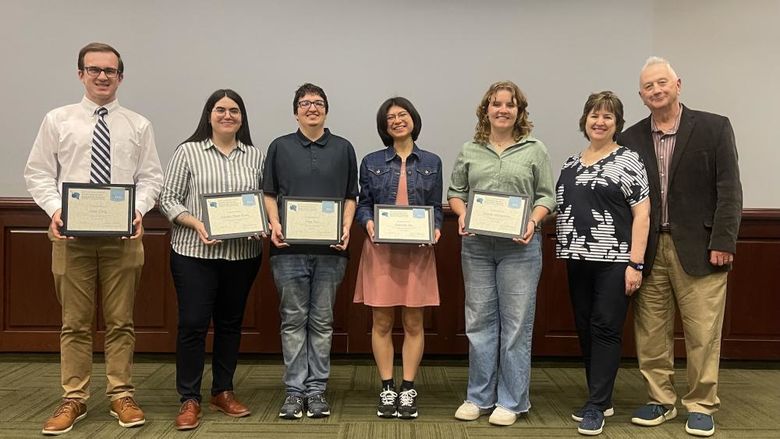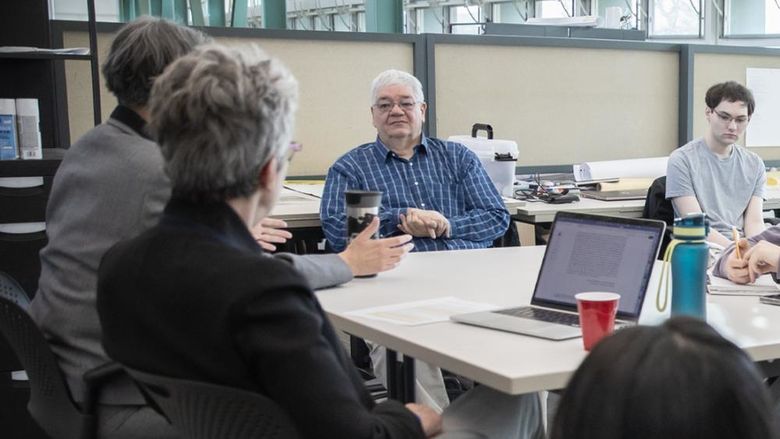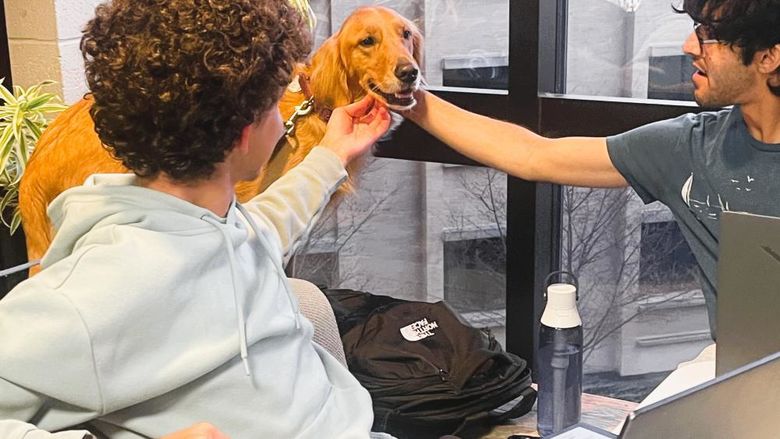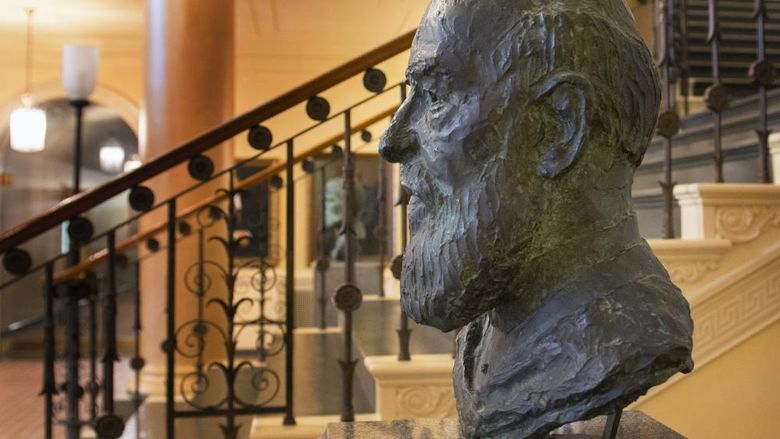
Sherry Robinson, associate professor of business at Penn State Hazleton, spent the fall 2016 semester at Bifrost University in Iceland as a Fulbright recipient. Here she stands in front of the Gullfoss waterfall in the Golden Circle cluster.
HAZLETON, Pa. — Sherry Robinson, associate professor of business at Penn State Hazleton, was selected as a recipient of a 2016-17 Fulbright scholarship to Iceland and spent the fall 2016 semester at Bifrost University in Bifrost, Iceland.
The Fulbright Program is the U.S. government’s flagship international educational exchange program, allowing American professors the opportunity to work with students abroad. Penn State was recognized by the U.S. Department of State’s Bureau of Educational and Cultural Affairs as one of the U.S. colleges and universities that produced the most Fulbright Scholars in the 2016-17 awards cycle. Robinson was among 11 scholars from Penn State who received Fulbright grants for 2016-17, tying the University for second place as one of the U.S. colleges and universities that produced the most Fulbright Scholars for the year.
“The Fulbright Program provides a unique cultural experience in which we are pleased Dr. Robinson had the opportunity to participate,” Chancellor Gary Lawler said. “She was able to discuss academic and cultural knowledge from Penn State Hazleton with people from all over the world and bring back their perspective to share insights with her students here.”
As a Fulbright Scholar, Robinson co-taught an international business class to 24 students from 12 countries in Europe and Asia. Her Fulbright project, “Integrating Learning Games into Blended Courses: A Cross-cultural Comparison of Student Responses to Learning Games,” guided her teaching during the semester. She taught with Ingo Arnarson, an assistant professor at Bifrost, partnering by taking the materials he traditionally used in his class and turning them into learning games.
Robinson said she learned a great deal from her students, explaining, “The students were highly intelligent and hard-working, but they were also kind and supportive. The classroom atmosphere was so positive that it was an utter joy to go to class and interact with the students.”
In working with the students abroad, she incorporated activities that she had developed at Penn State Hazleton. Robinson also worked with adults, co-teaching a session on creativity and innovation during an “Empowering Women” weekend held by the university’s continuing education department and teaching a seminar entitled “Learning Games Toolbox” to Bifrost faculty at the Reykjavik office. During the seminar, she explained the design of learning games and compared the results of her current research with Bifrost students with past research involving Hazleton students.
Her semester in Iceland concluded with her formal presentation to a group that included members of the Fulbright board of directors and representatives from the United States Embassy.
Highlights of Robinson’s experience included seeing the Northern Lights, baking American treats for her students and igniting her interest in photography. She took nearly 23,000 pictures during the semester, with her photos so well received that she was asked to publish a calendar celebrating the 60th anniversary of the U.S.–Iceland Fulbright Program. Along with other Fulbright scholars and staff, Robinson had the opportunity to visit Iceland’s president, Guðni Jóhannesson, and his wife, Eliza Reid. The group toured the presidential home, including the basement, where Viking antiquities were found a few years ago.
Robinson previously received a Fulbright scholarship for the 2008-09 academic year, teaching business courses and performing research at Buskerud University in Norway. She first visited Norway in 2004 as part of Rotary International’s Group Study Exchange. She began studying Norwegian, returning to the country several times and becoming fluent in the language.
After the conclusion of her recent Fulbright in Iceland, she gave a presentation about her time there to the Rotary Club of Greater Hazleton. She also served as part of the “Fulbright as a Form of Cultural Diplomacy” panel during a one-day Fulbright Conference at University Park on April 6. The conference brings past Fulbright recipients and potential applicants together to discuss the Fulbright Program.
Since its inception in 1946, the Fulbright Program has provided more than 370,000 participants — chosen for their academic merit and leadership potential — with the opportunity to exchange ideas and contribute to finding solutions to shared international concerns. More than 1,100 U.S. college and university faculty and administrators, professionals, artists, journalists, scientists, lawyers, and independent scholars are awarded Fulbright grants to teach and/or conduct research annually. The Fulbright U.S. Scholar Program operates in more than 125 countries throughout the world.





